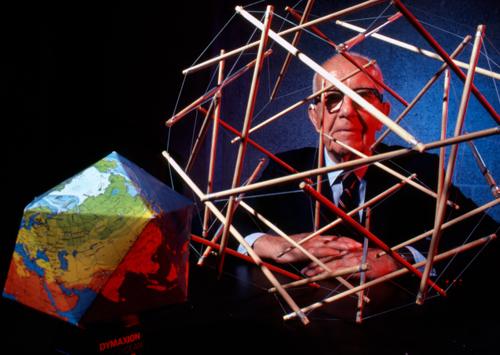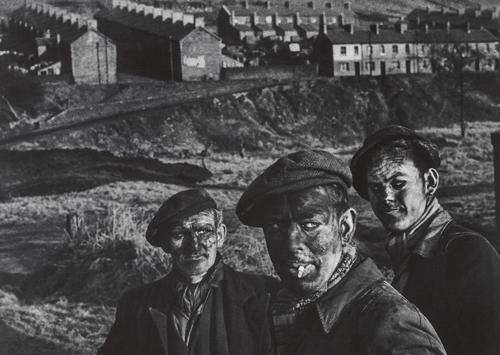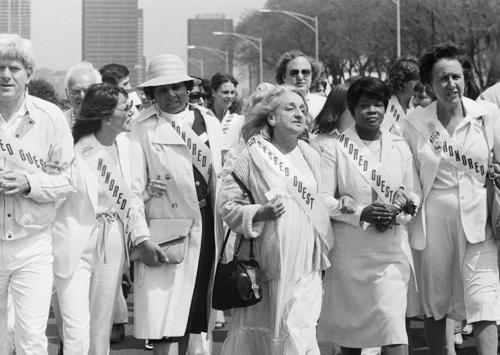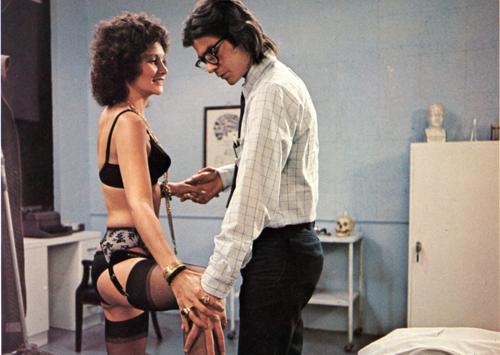Listen to New Voices on Studs Terkel our partnership with 826CHI-here! Read the Story
Showing 1 - 15 of 21 results
-
William Stringfellow discusses politics, race, and theology
Interviewing William Stringfellow, American lawyer and activist. He discusses various topics including religion, social issues, and activism. Includes an interview with Cora Weiss. Content Warning: This conversation has the presence of outdated, biased, offensive language. Rather than remove this content, we present it in the context of twentieth-century social history to acknowledge and learn from its impact and to inspire awareness and discussion.
-
Vivian Adams discusses the beliefs of the Mormon Church regarding the Equal Rights Amendment (ERA)
Jun. 15, 1982 Vivian Adams discusses the reasons behind the Mormon Church's stance against the Equal Rights Amendment (ERA). The discussion includes the beliefs of the Church regarding the roles of men and women, as well as the history and music of the Mormon Church.
-
The Collier Family, Dr. Kawalak, and Augustine Stevens discuss Sierra Leone and the Peace Corps; part 1
Jul. 26, 1966 Discussing Sierra Leone, the Peace Corps, and interviewing the Collier Family, Dr. Kawalak, and Augustine Stevens. They also discuss the languages, culture, religion, and history of Sierra Leone. Includes clips of African music (from Sierra Leone).
-
R. Buckminster (Richard ) Fuller talks with Studs Terkel
Jan. 20, 1965 A sprawling conversation with R. Buckminster Fuller including his great aunt Margaret Fuller, future communication, the nature of work, human nature, and physics.
-
Pat Thompson discusses her background and her TV reporting career
Jan. 14, 1975 A reporter for WMAQ-TV, an NBC affiliate, Pat Thompson talks about her background and her TV reporting career. Ms. Thompson loved to read books, to be in other locales. Going into TV was the result of realizing she received her news mostly from the television.
-
Laurel Snyder discusses prostitution and the COYOTE organization
Aug. 26, 1980 Laurel Snyder describes to Studs Terkel her journey into prostitution and her involvement in the organization COYOTE, which advocates for the rights of sex workers and the decriminalization of prostitution.
-
Juliet Mitchell discusses women, family, and oppression
Apr. 25, 1971 An interview with teacher and lecturer, Juliet Mitchell, who is a Marxist. She shares her support for the women's movement and talks about issues that affect women especially gender inequality. Juliet also refers to some comparisons between British and American women's movement.
-
Interviewing labor and women's rights activist, and educator June Rostan
Jul. 1, 1992 Program includes an excerpt of a 1978 interview with songwriter and labor rights activist Florence Reece.
-
Interviewing Aileen and W. Eugene Smith
May. 22, 1975 Aileen and Eugene Smith discuss their photographic essay book, "'Minamata', Words and Photographs," documenting the mercury poisoning of residents and their legal battles with the polluting company Chisso.
-
Illinois state representative Susan Catania, Clara Day and Marguerite Klimkowski discuss the Equal Rights Amendment (ERA)
Nov. 1, 1978 Discussing the Equal Rights Amendment with Illinois Representative Susan Catania and political activists Clara Day and Margaret Klimkowski.
-
Donna Kay Borrenpohl discusses her life and interests
Studs interviews a junior college freshman, Donna Kay Borrenpohl. They touch on subjects such as her life growing up on a farm, auto mechanic work, and gender stereotypes in career interests. Content Warning: This conversation includes racially and/or culturally derogatory language and/or negative depictions of Black and Indigenous people of color, women, and LGBTQI+ individuals. Rather than remove this content, we present it in the context of twentieth-century social history to acknowledge and learn from its impact and to inspire awareness and discussion.
-
Discussing the book "Blue Money : Pornography and the Pornographers - an intimate look at the two-billion-dollar fantasy industry" and interviewing the author Carolyn See
Aug. 16, 1974 Discussing the book "Blue Money: Pornography and the Pornographers - an intimate look at the two-billion-dollar fantasy industry" and interviewing the author Carolyn See. Includes Carolyn See reading an excerpt from the book at the beginning.






